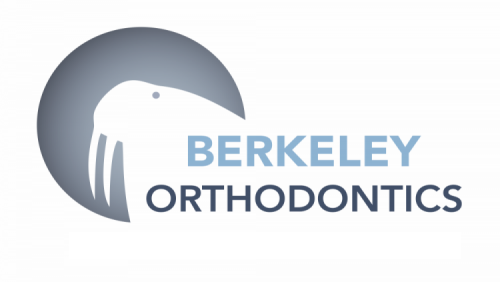Braces
New patients typically have many questions. Below are some questions specific to braces. Find more frequently asked questions about treatment and orthodontics here.
Q: Will I still be able to play sports?
Q: Will braces interfere with playing musical instruments?
Q: Will I need to do anything different in my oral hygiene habits while wearing braces?
Q: Are there certain foods to be avoided while in braces?
Q: Can braces be placed on the inside of the teeth?
Q: Do braces hurt?
A: When you first get braces, the movement of your teeth may cause an aching feeling. The insides of your lips and mouth may feel tender due to the unfamiliar roughness of the brackets and wires. Fortunately, your mouth adjusts quickly, and the discomfort typically doesn’t last more than a couple of days.
Q: Will I still be able to play sports?
A: Yes. It is recommended, however, that patients wear a mouth guard when participating in any sporting activity. Mouth guards are inexpensive, comfortable, and come in a variety of colors and patterns. The “boil and bite” types of mouth guards work well with braces and are available in all sporting goods stores.
Q: Will braces interfere with playing musical instruments?
A: No. However, there may be an initial period of adjustment. Brace covers and protective wax can be provided to prevent discomfort. You may also be a candidate for clear aligner therapy (ex: Invisalign®), which may minimize or eliminate need for any braces during your treatment.
Q: Will I need to do anything different in my oral hygiene habits while wearing braces?
A: It’s really important to keep your teeth and mouth clean while wearing braces. When you take your braces off, you want bright, healthy teeth, right? Poor oral hygiene can lead to decalcification and permanent white stains on the teeth, which may require corrective dental restorations. The Berkeley Orthodontics team will teach you how to brush and floss when you get your braces on (there are special tools we can give you to help make it easier). Remember, while you’re wearing braces, you will still need to see your family dentist for regular cleanings and check-ups!
Q: Are there certain foods to be avoided while in braces?
A: Yes, there are! See more information about foods to avoid and diet ideas here.
Q: Can braces be placed on the inside of the teeth?
A: Yes. This treatment option is called Lingual Braces. Thanks to recent technological advances in orthodontics, lingual braces are making a comeback! We use an advanced system called Incognito™ by 3M Unitek.
Invisalign
New patients typically have many questions. Below are some questions specific to braces. Find more frequently asked questions about treatment and orthodontics here.
Q: Will Invisalign treatment be painful?
Q: What do aligners look like?
Q: Will wearing Invisalign aligners affect my speech?
Q: How often do I have to wear my aligners?
Q: Does insurance cover Invisalign?
Q: Does Invisalign correct all orthodontic problems in teens and adults?
Q: How does Invisalign work?
A: Invisalign treatment requires a series of clear aligners made specifically for your teeth. Each aligner will make small adjustments to the position of your teeth. These adjustments are programmed into the aligners using advanced scanning and three dimensional digital computer graphics. You use new aligners about every two weeks. Over the entire course of your treatment, your teeth will move into the planned position.
Q: Will Invisalign treatment be painful?
A: When you put in a new aligner, you may feel some pressure on the teeth, which may be uncomfortable. The discomfort is temporary and normal. It is the byproduct of teeth moving slightly.
Q: What do aligners look like?
A: As the name suggests, clear aligners are transparent. This makes them nearly invisible. They are plastic and pliable. They are similar to tooth whitening trays.
Q: Will wearing Invisalign aligners affect my speech?
A: Everyone is different, but most people adjust quickly to the sensation of the aligners and the process of speaking with aligners in place.
Q: How often do I have to wear my aligners?
A: Invisalign will only work when the aligners are worn full time. You must wear your aligners at least 22 hours a day. Wear them day and night, except when you are eating, brushing, or flossing.
Q: Does insurance cover Invisalign?
A: Insurance plans that cover orthodontics should cover Invisalign.
Q: Does Invisalign correct all orthodontic problems in teens and adults?
A: Proper case selection is extremely important for a successful treatment result with Invisalign. Although Invisalign’s ability to correct many complex orthodontic problems has increased over the years, some cases benefit from a combination therapy of Invisalign and braces, and some cases are best treated with braces only. We will evaluate all possible options during your complimentary consultation.
Q: Is Invisalign for me?
A: The Berkeley Orthodontics doctors have years of experience with this treatment modality, and we can answer this question when we get a chance to meet you. Invisalign Preferred Providers have achieved a significant level of experience in treating patients with the Invisalign system. In addition, some practices, such as Berkeley Orthodontics, have distinguished themselves with even higher experience and are recognized as “Elite Providers”. Find out if Invisalign is right for you by scheduling a complimentary consultation today.
If there are any other questions not listed here, or you need additional information, please contact us at questions@berkeleyorthodontics.com.



